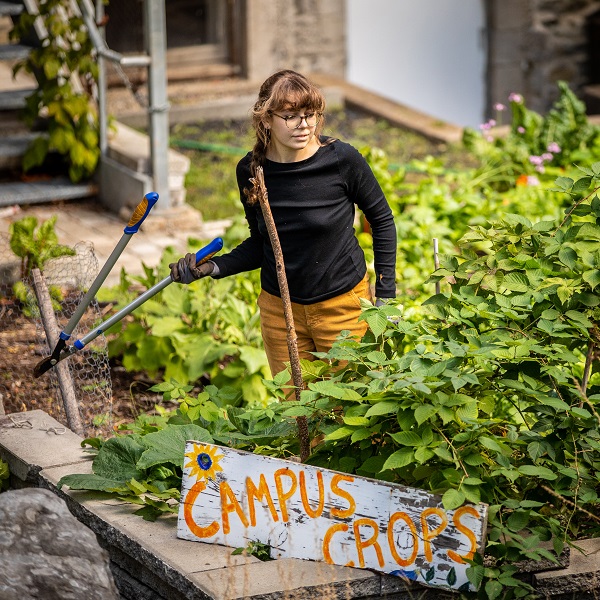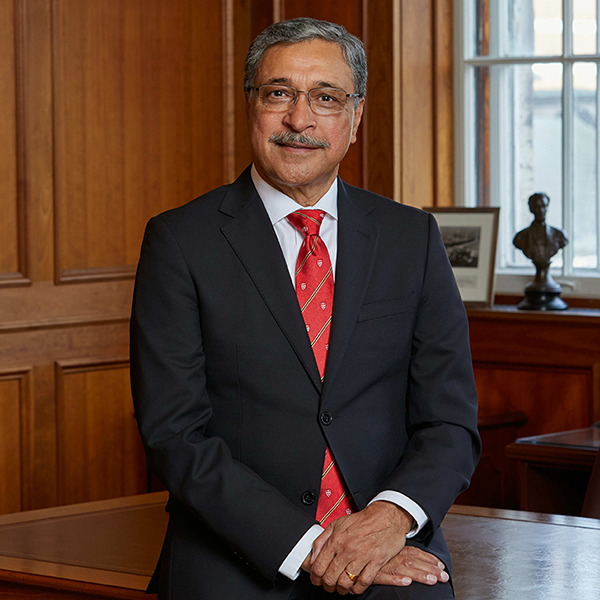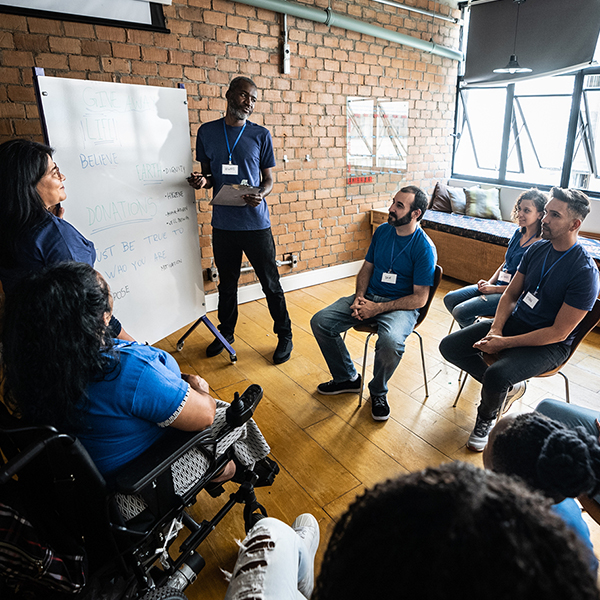When the University closed its campuses and cancelled all in-person classes, McGill’s Student Wellness Hub faced a daunting logistical challenge: providing comprehensive support to thousands of students at home.
“We wanted to make sure the transition was as seamless as possible in terms of access because we are aware that our students are struggling and our community at large is going through a crisis,” says Wellness Hub director Dr. Vera Romano, BA’96, MEd’00, PhD’07.
The Hub is a one-stop shop for mental and physical health that was created in part thanks to a significant investment from The Rossy Foundation. Only a few months after its official launch in November 2019, the Hub had to quickly pivot to providing exclusively virtual services.
Fortunately, they were prepared. In the year prior to launching, the team developed strategies to deal with all the changes associated with shifting to the new Hub and its distinct approach to student health. “We had already implemented quite a lot of changes, which created a capacity to respond in a flexible and intentional way,” explains Romano.
With this “change capacity” anchoring their response, the Hub also benefited from weeks of pandemic planning. “We were involved from the beginning in the University’s early preparedness measures, as early as January,” says Romano. “So having this early thinking and planning really set the stage for us to move fast.”
Within a week of the Quebec government’s decision to close schools, the Hub was ready to start relaunching its services online.
Finding Zen moments on Facebook Live
One of the programs that was up and running within that first week was “Zen in 10.” Airing on McGill’s Student Services Facebook page, these 10-minute mindfulness and relaxation sessions are hosted by the Hub’s local wellness advisors (LWAs).
Forming the “spokes” of the Wellness Hub, LWAs are trained clinicians who represent major constituencies at McGill. Many are based in individual faculties and others are responsible for distinct groups, like international students.
On Facebook Live, LWAs have been taking turns leading an activity of their choice – often a breathing exercise or guided visualization – and sharing their unique approaches to maintaining mental health during the crisis.
“Every week, the thing I choose is based on a piece of advice I want to give,” explains Samara Yesovitch, MSc’18, the LWA for the Desautels Faculty of Management. “Whether it’s stretching, whether it’s encouraging people to be thoughtful in their interactions, encouraging them to be compassionate with themselves, or acknowledging their strengths.”
The videos have been remarkably successful and, combined, have racked up more than 10,000 views so far. In addition to providing a daily respite from the stress of the pandemic, the Zen in 10 sessions are an opportunity for students to get to know their LWAs and maintain a sense of community from afar.
“It kind of appeals to the educator inside me, and to my desire to put myself out there and connect with our students,” says Yesovitch, who is clearly at ease in front of the camera and hasn’t shied away from sharing personal stories with viewers.
“As a clinician, it’s very rare that you talk about yourself in a session with another person. But when you’re making videos, you really want to connect to people and you want them to trust you, so you disclose a little bit about yourself,” she explains.
Yesovitch, whose position is funded by McGill donors Gisèle and Neil Murdoch, BCom’81, was the first to host a Zen in 10 in March. In April and early May, she led additional Facebook Live sessions for Desautels students every Friday. This outreach has prompted a flood of requests for individual consultations, so Yesovitch plans to focus on this aspect of her role over the summer.
Building resilience virtually
The Hub has rolled out a comprehensive suite of online programs, including a COVID-19 emotional support group, a workshop on managing stress in uncertain times and another Facebook Live initiative called Art Hive that offers family-friendly crafting ideas.
“It was exciting to see all these virtual offerings that we wanted to try but hadn’t had the chance yet. I think a lot of us took it as an opportunity to try out new ways of reaching the students. And the reach has been really wonderful,” says Dr. Dana Carsley, BEd’12, MEd’15, PhD’19, who recently joined the Hub team as a wellness enhancement specialist.
In keeping with the Hub’s mandate of establishing a “resilient campus,” the virtual workshops and group activities take a preventative approach to mental health.
“One thing that’s important to recognize is that resilience is something you can build,” explains Carsley, who specializes in resilience-based programming. “I approach it like the fitness model. We have muscles, but we need to work to make them stronger.”
“When you’re in a crisis, you won’t just say, ‘OK, I’m going to take 20 minutes and do mindfulness.’ If you’ve never done it before, it’s going to be really hard. It’s about building skills over time and strengthening that muscle so that when you’re in more challenging circumstances, you’re better prepared to manage it.”
Now over two months into the lockdown, the Hub team is evaluating the effectiveness of its offerings and adding new programs to the roster. It recently launched a weekly session on physical exercise and a mindfulness-based stress management workshop.
Carsley recommends that students try out the different wellness strategies and activities to find the ones that work for them. “Because it isn’t one-size-fits-all,” she says.
Adapting to remote counselling
Frontline services like individual counselling and psychiatry sessions have also moved online. To ensure confidentiality in their meetings with students, the Hub’s professionals are using specialized and secure platforms for virtual therapy.
“We had to make sure we were not only doing this fast but that we were doing it right. And we’re happy that we were able to do both,” says Romano, emphasizing that privacy was a major focus of the transition.
For Yesovitch, the shift to remote counselling was easier than expected. “For a long time, I’ve been very resistant to the idea of these kinds of meetings because it’s so important to be in the room. But I’ve realized that it is possible. I can do this.”
The Desautels LWA says the pandemic hasn’t changed much about her sessions with students. “What people kind of forget is – we’re still us. We have this new layer of concern and wonder, but all the things that were ailing us before are still ailing us.”
She believes that McGill students – who regularly deal with the uncertainty of transitioning to adulthood and making difficult career choices – may be well positioned to deal with the chaos of the COVID-19 pandemic.
“I think it’s important to not underestimate ourselves and have faith that we can get through it,” says Yesovitch. “We have living proof that we’ve gotten through other things before, so we can get through this too.”
Looking for advice on how to stay motivated in self-isolation? Award-winning clinical psychologist Nasreen Khatri shared these six tips in a recent webinar on young adult mental health.


